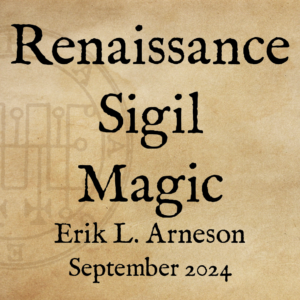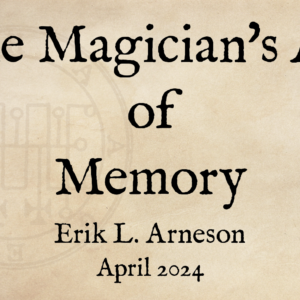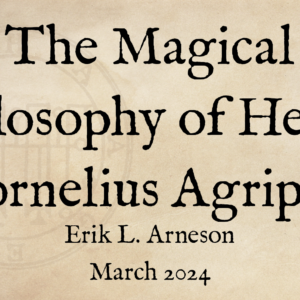It’s the beginning of December, and in the Pacific Northwest, that means it gets dark really early and the Sun rises late. We have a lot of darkness this time of the year, and in Portland we make up for that darkness by celebrating a lot. My family isn’t religious, but we still celebrate Christmas in what I have always assumed is the traditional American way – a tree, a bunch of presents, The Night Before Christmas, big meals, shots of akvavit, and singing carols together. That’s how everybody does it, right?
But unlike my family, I am religious and I’m not Christian. What holidays are available to the modern pagan? I’m curious about how other modern pagans pick their Winter holidays, so I’m going to share some things that my friends and I have done or are planning to do.
Krampusnacht
Krampus is a half-goat, half-demon Christmas monster from Central Europe. Every year on December 5th, Krampusnacht is celebrated. Kids leave their shoes out on the front porch to see if they are to be rewarded or punished for their behavior over the past year. In the United States, Krampus has been getting more attention over the past few years. He’s got a movie and was featured on an episode of Grimm.
Krampus may not be 100% pagan, but he’s definitely a holdover from pre-Christian traditions. In some legends he’s said to be the son of Hel, and that’s about as pagan as you can get. Celebrating Krampusnacht therefore seems like a really entertaining, enjoyable holiday activity. In Portland, local wizard-artist Arun has been organizing the annual PDX Krampus Lauf since 2009. It happened on December 2nd of 2018, but I am certain it will keep going. Check out the Facebook page for future dates.
Saturnalia
There is something about Saturnalia that really delights me. It’s a feast of the Roman god, Saturn, who probably ruled over agriculture, but also was associated with the Greek god Kronos. Saturn dealt with wealth, destruction, generation, cycles of life and death, and eventually the passage of time. There’s a lot to unpack in Saturn – He is a complex deity. He gave His name to both the planet and Saturday.
The festival of Saturnalia began as a one-day festival, celebrated on December 17th. However, eventually it stretched and grew into a week-long orgy of parties, gambling, pageantry, and role-reversal. Morals were loosened. Slaves became masters and gifts were given. Overall it sounds like quite the crazy party. I think perhaps it was a little too crazy.
I discussed celebrating Saturnalia with a friend of mine, who expressed the opinion that it was probably too great an undertaking for us. He suggested an alternative: “Why don’t we pick one night that week and stick $20 in a poker machine at a strip club?” So there you go: modern Saturnalia.
Yule
This is probably the best-known pagan winter holiday. Yule is a celebration of the Winter Solstice, so it’s usually celebrated on December 20th or 21st. It’s the holiday from which we get Yule logs and Yuletide. I first celebrated Yule in high school, back in the 90s, when I got together with some fellow pagan pals and we cooked up a feast. This holiday is celebrated with bonfires, wassailing, sprigs of holly and mistletoe, and trees.
The symbolism of Yule revolves around rebirth. The longest night of the year has passed, and now the light once more increases. Evergreen trees are an important element of this symbolism, and probably the source of modern Christmas trees.
Yule is a good time for hot, spiced drinks. Wassail, mulled wine, and glühwein are all great beverages to cook up and share during this time of the year. For me, Yule is about gathering your friends and family close. I like to celebrate Yule with friends, surrounded by comfortable food and drink. This year, I’ll be doing just that: I’ll be gathering a small group of friends at a local pub, and we will reminisce about the year, plan the year to come, and discuss various pagan and occult topics. There will be toasting, blessing, and maybe a song or two.
For other ideas on celebrating Yule, check out this article and this list of 13 ideas.
Sol Invictus
Sol Invictus, the Unconquered Sun, was the Sun god of the Roman Empire between the 3rd and 6th centuries CE. There was a feast day for Sol Invictus on December 25th back then, Dies Natalis Solis Invicti. It’s possible that the early Christian Church took December 25th as Christmas because it was already being used as a feast day, but apparently scholars don’t agree on this, and it’s just as likely that the celebration of Christmas is simply close to the solstice.
I’m not sure how Romans celebrated the festival of Sol Invictus. On December 25th, I am with my family, having a Christmas celebration. I celebrate this festival simply by offering a toast at Christmas dinner: “To the birth of the Unconquerable Sun! SOLI INVICTO!” It gets some weird looks but everybody enjoys a good toast.
How do you celebrate pagan holidays in the Winter? I’d like to hear!
Did you like this article? My patrons received it five days early. Support my work on Patreon!






[…] I decided to base this mnemonic device on my favorite holiday song, “The Twelve Days of Christmas.” The words are easy to remember, and if you don’t […]